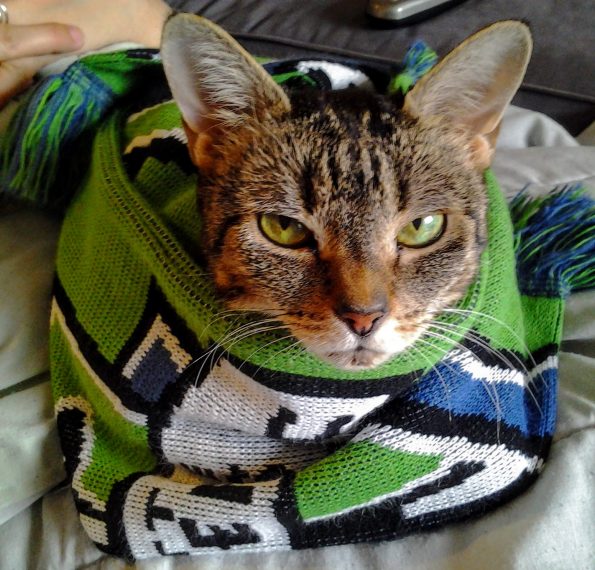
Meet Alice! She is a very sweet, wonderful older lady. We love seeing her here at Hawthorne Hills Veterinary Hospital. Alice has battled constipation issues for many years. She is on multiple medications that help prevent her from becoming repeatedly constipated. Her owners have been diligent about ensuring she gets her medications and the proper care.
As cats age, like us, they are prone to old age diseases. A common issue for older cats is constipation. If left untreated it can lead to obstipation and megacolon. This occurs after repeated bouts of constipation leading to the loss of function in the colon and an inability to defecate.
How do you know if your cat is constipated?
It’s not always obvious that your cat is having constipation issues. Many times people bring their cats to the veterinary hospital for other reasons. After a physical exam by the veterinarian, constipation can be determined to be causing the clinical signs.
Signs Cats are Constipated
Repeated straining in the litter box (this can also be a sign of a urinary blockage and this is an emergency)
Small hard feces
Vocalizing in the litterbox
Vomiting
Weight Loss
Loss of Appetite
Defecating outside of the litterbox
These are some of the most common signs of constipation in cats. As stated earlier, constipation is the consequence of another disease process. This list below covers some of the more common reasons but is by no means exhaustive.
Dehydration
Renal disease
Hyperthyroidism
Diabetes
Arthritis
Neurological diseases
Tumors (in colon)
Anal Glad disease
Stress/behavioral issues
Pelvic Fractures
With numerous diseases causing constipation, it is easy to see why it can be difficult to tell if your cat is constipated. If caught early then we can avoid having cats become obstipated and developing megacolon.
Once a cat is diagnosed as constipated, the initial treatment involves fluid therapy to correct any dehydration and enemas. Cats may also need pain medications and anti-nausea medications. There may be other more specific therapies recommended if your cat is diagnosed with other conditions. Rarely, with very severe cases it may be recommended to sedate and manually remove the feces.
Diagnostic tests such as blood work and x-rays may also be recommended to rule out some of the underlying disease processes.
Long-term treatment of cats prone to constipation is prescription diets high in fiber. Medications such as Miralax, Metamucil and Lactulose may be added. These help by drawing water into the colon and preventing the feces from drying out. There are also medications that can increase motility of the colon. If your cat is diagnosed with a specific condition, then additional medications may be recommended by your veterinarian. Increasing water consumption by feeding a canned diet may also aid in preventing dehydration.
Once your cat is diagnosed with constipation, it is imperative to monitor them closely and keep them on the recommended diet and medications. While this is typically a lifelong condition, Alice is a prime example that with dedicated owners and the right medication these cases can be well managed!

 6512 12th Ave NE
6512 12th Ave NE



